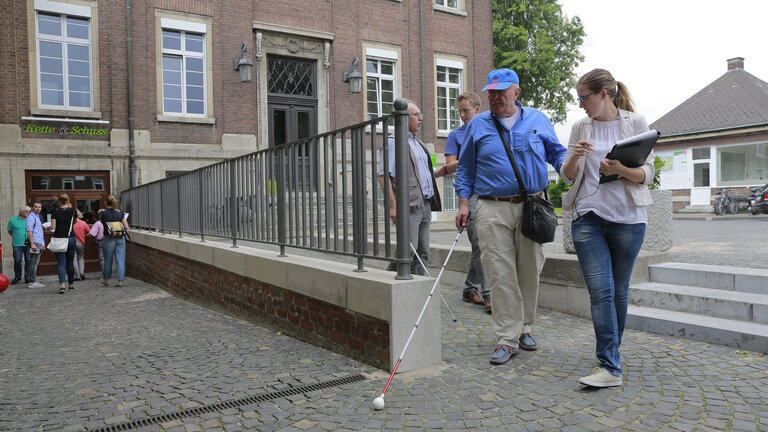Pedestrian crossings with lights that stay green longer when needed; benches to which people with poor circulation can be directed in the event of an emergency; kerbs that lower to accommodate walking frames; street lights that adjust their strength to suit the visual faculties of passers-by and sensors that alert people to danger at street crossings and junctions, to name but a few examples. With the assistance of Human Technology Interaction (HTI) Drees & Sommer, together with eleven other project participants, is involved in making everyday life safer for seniors.
To this end, experts in the fields of business informatics, computer sciences, health and nursing sciences, and urban planning have come together for the next five years under the aegis of the University of Hohenheim. The 6.2-million euro project has its origins in a competition on innovations for communities and regions in demographic change (Innovationen für Kommunen und Regionen im demografischen Wandel - Innoc Komm) and receives support from the Federal Ministry of Education and Research. All of the practical testing is taking place in Mönchengladbach’s districts Rheindahlen and Hardterbroich.
Safety atlas shows the way
In addition to the intelligent lighting, kerbstone and bench prototypes, it is planned to establish a type of safety atlas as a basis for the further development of street furniture. The safety atlas will act as a repository of data and detailed analytical findings. The team from Drees & Sommer will devise the guidelines for this element of the project, which will include all of the relevant urban objects together with their geo-coordinates and distinctive features. Examples include benches, bus stops, kerbstones and cycle paths, as well as details of route surfaces, distances and inclines.
‘The safety atlas will show urban planners and HTI developers how to design town and city districts with adaptability in mind so as to permit senior citizens to continue to be part of public life. Because a lot of what applies to Mönchengladbach will also apply to other places”, maintained Mustafa Kösebay, Associate Partner at Drees Sommer SE. The company has developed GIS systems (geographical information systems) that can be used to keep inventories of street furniture.
A great deal more information on the project can be found at https://www.urbanlifeplus.de.
